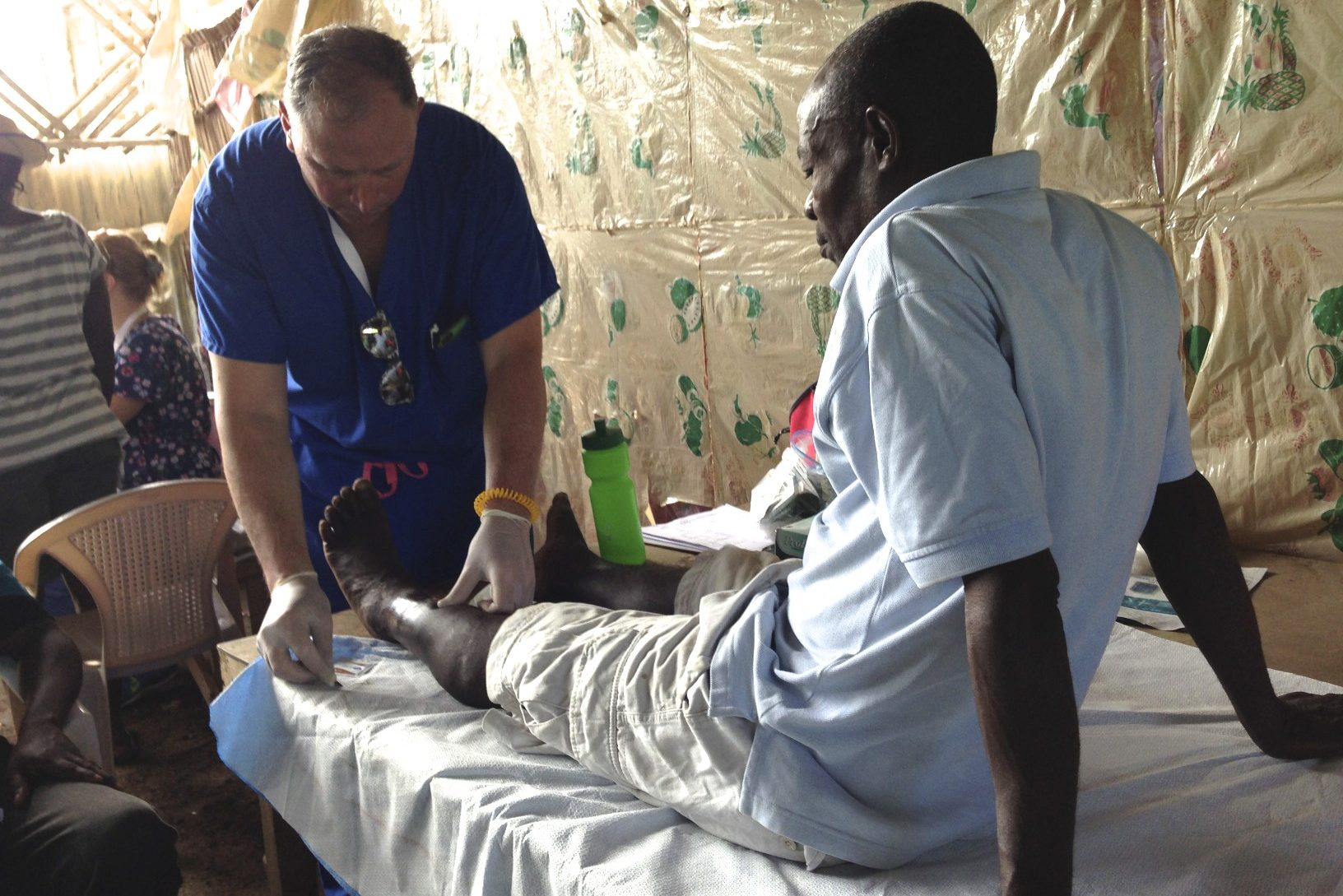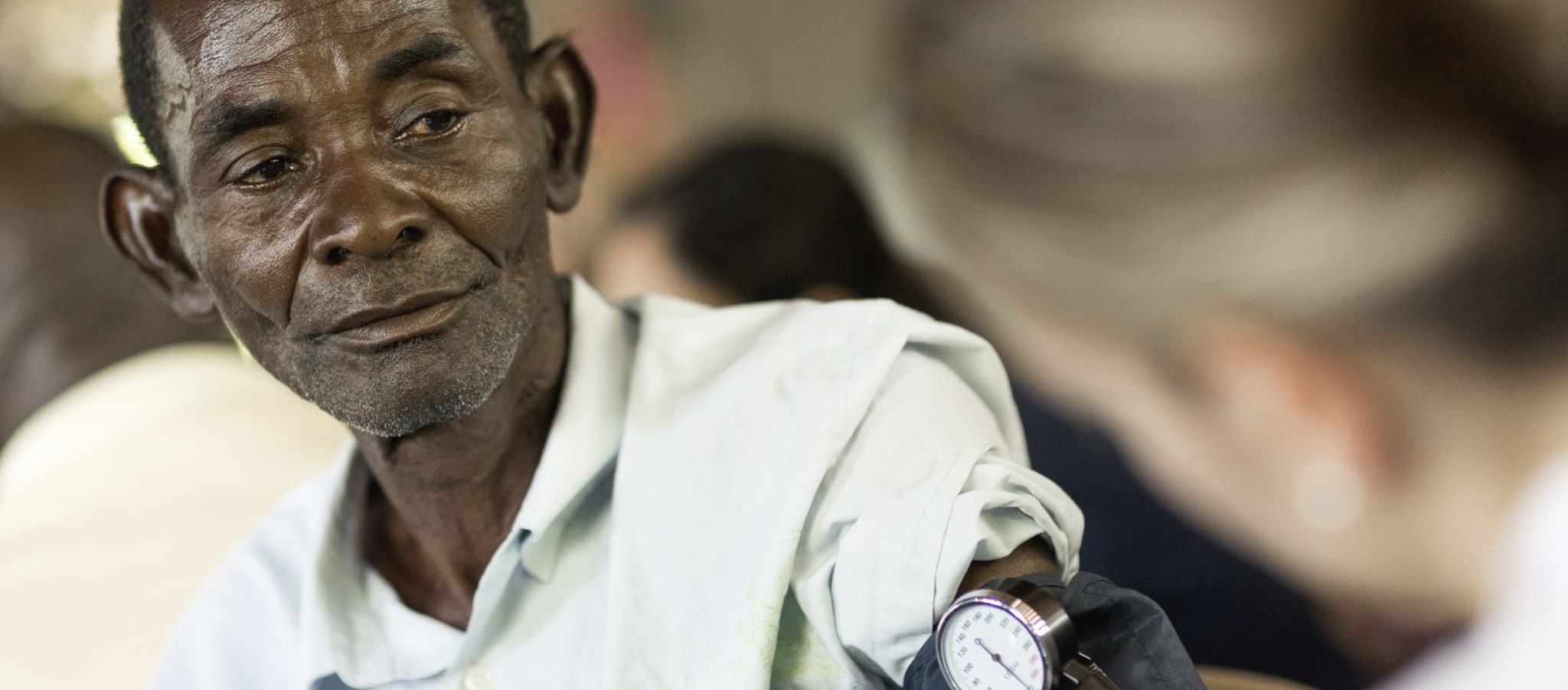
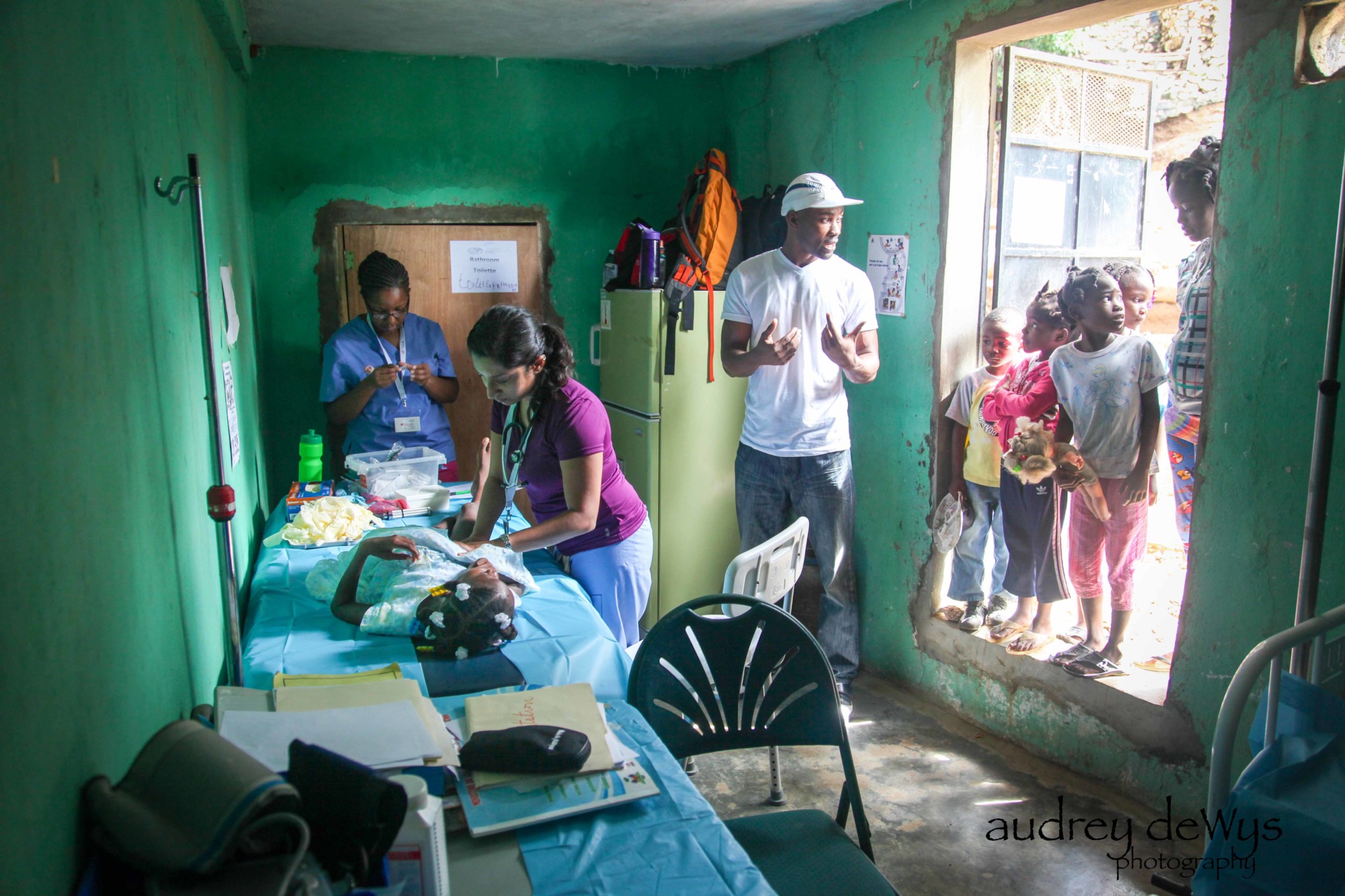
MOBILE SANTÈ OUTREACH CLINICS
Our Haitian doctors and nurses set up one-day mobile outreach health care clinics as often as 4 times monthly in communities without access to basic health care, where they often see more than a hundred patients in a day, many of whom have never before seen a doctor. Mobile Santè is the umbrella for many of our other programs, including Saving Vision; doctors and nurses refer patients into our ongoing programs and refer those who need advanced care to our partner hospitals. Visiting teams join forces with our in-country team as they work together to offer clinics in more remote places, sometimes with a specialty focus.
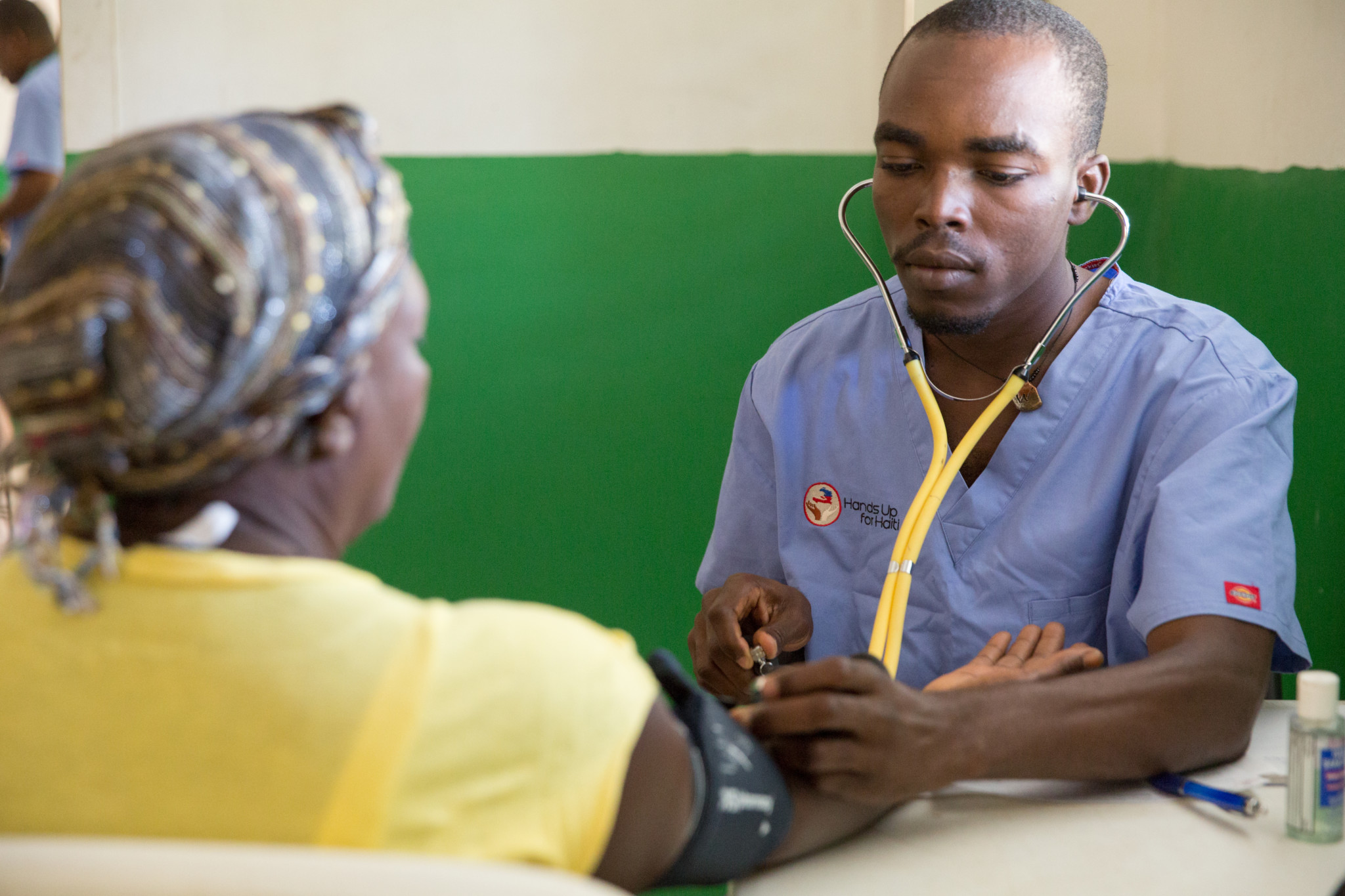
HYPERTENSION SCREEN & TREAT
Severe and unrecognized hypertension contributes to high levels of stroke, heart failure and premature death. Through our hypertension initiative, we train local nurses and other health care providers in a simple, easy-to-follow protocol and provide a supply of prepackaged, safe and inexpensive medications to our patients. The compliance rate is inspiring: at least 95% of the patients enrolled come to their regular appointments and are on the correct medications, with positive results. And proof of success? Our oldest patient is a centenarian!
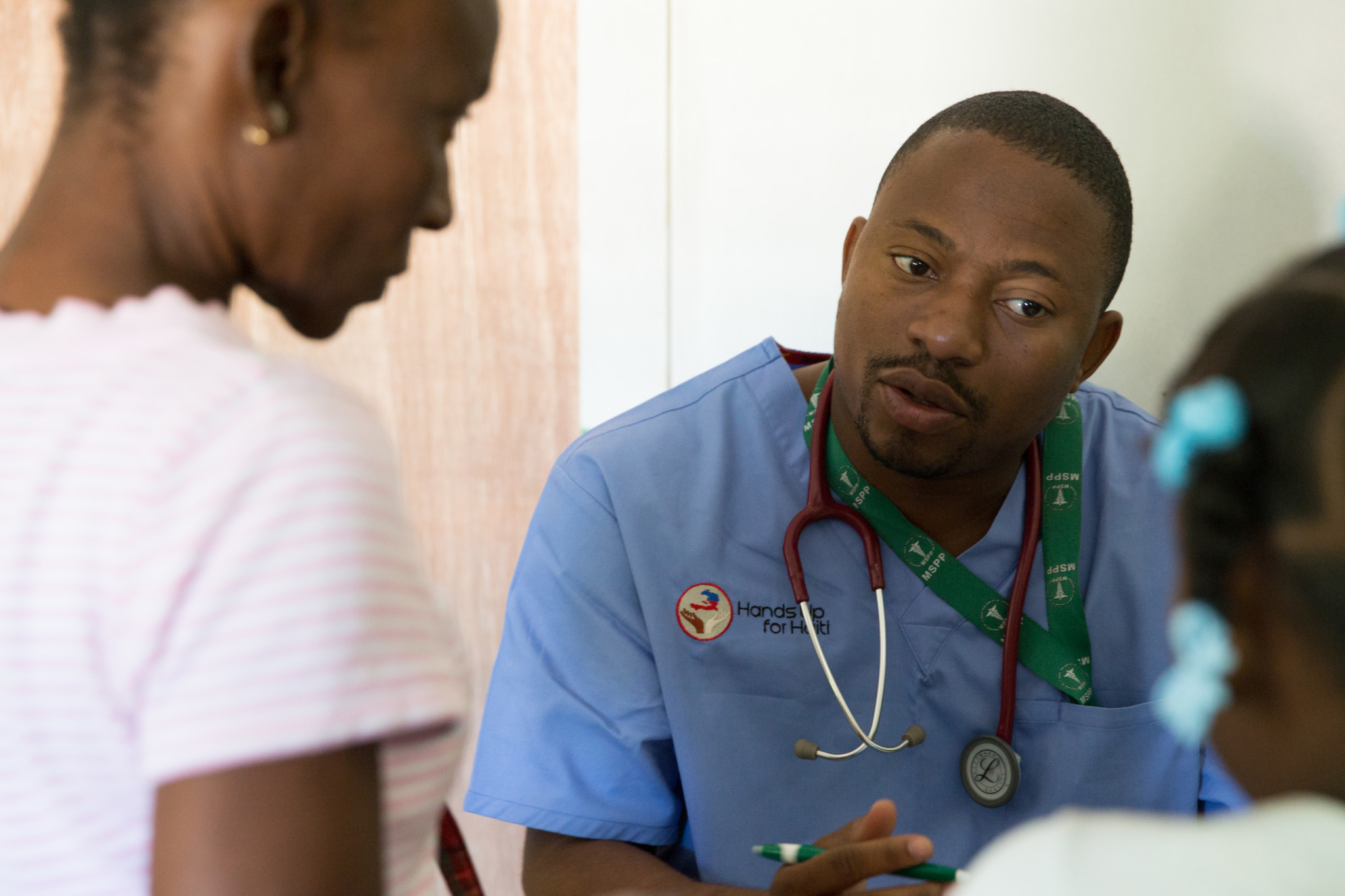
HUFH PROGRAM SITES
HUFH supports several clinics in and around Cap Haitien. These clinics are staffed year-round by Haitian doctors, nurses and community health workers, who are directly supported by HUFH donors. The staff provides care for children, pregnant women and other adults. Our goals are to provide direct care for acute illnesses, improve maternal and neonatal outcomes, promote breastfeeding, identify and treat malnutrition, and identify and treat preventable diseases in adults. HUFH supports the clinics with medical supplies, medications, and laboratory equipment, and our visiting teams provide additional support, working side-by-side with clinic staff.
